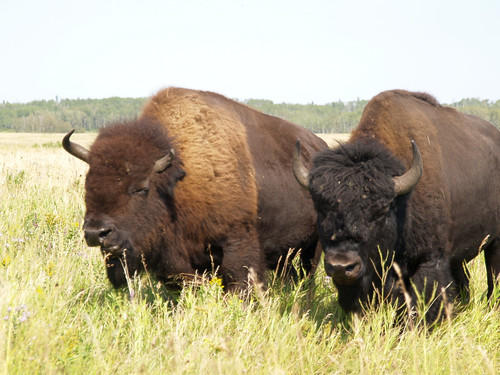The Way We Value Wildlife is Shifting in the West

Bison
THECLYDE / CREATIVE COMMONS 2.0
According to a study out of Colorado State University, more people believe that animals should be protected and given rights on par with humans than they did 15 years ago. Fewer people believe that wildlife exists for our gain.
Tara Teel, one of the lead researchers on the study, blamed the change in attitude in part on urbanization, something that’s removed more people from wild landscapes and from daily interactions with wildlife.
She said wild animals “are no longer just a source of food and a risk. But they’re these creatures that get depicted on television as more human-like.”
The number of people who don’t really care about wildlife either way is also growing.
“That’s the group that agencies are oftentimes really concerned about,” said Teel, “because they’re not engaged in wildlife issues at all.”
The survey did find that people trust wildlife agencies far more than they trust other branches of the federal or state government, though Teel said that trust may be waning as more people want the agencies to focus on animal protection rather than animal control.
Teel said this shift in perception is also related to fewer people engaging with wildlife through hunting and fishing, and that may mean wildlife agencies need to find more sources of revenue outside of hunting and fishing permits.
This story was produced by the Mountain West News Bureau, a collaboration between Wyoming Public Media, Boise State Public Radio in Idaho, KUNR in Nevada, KUER in Salt Lake City, and KRCC and KUNC in Colorado.


